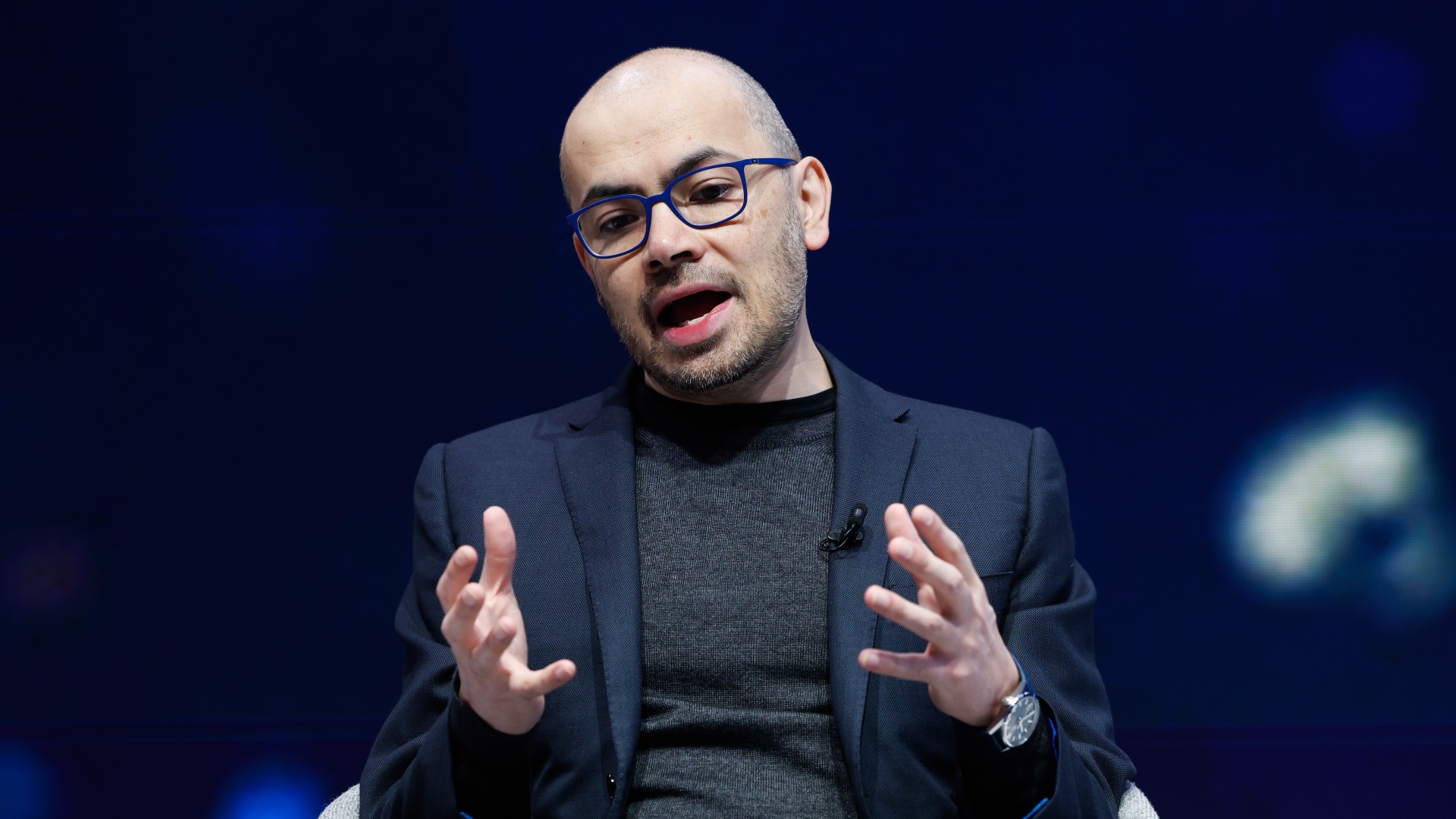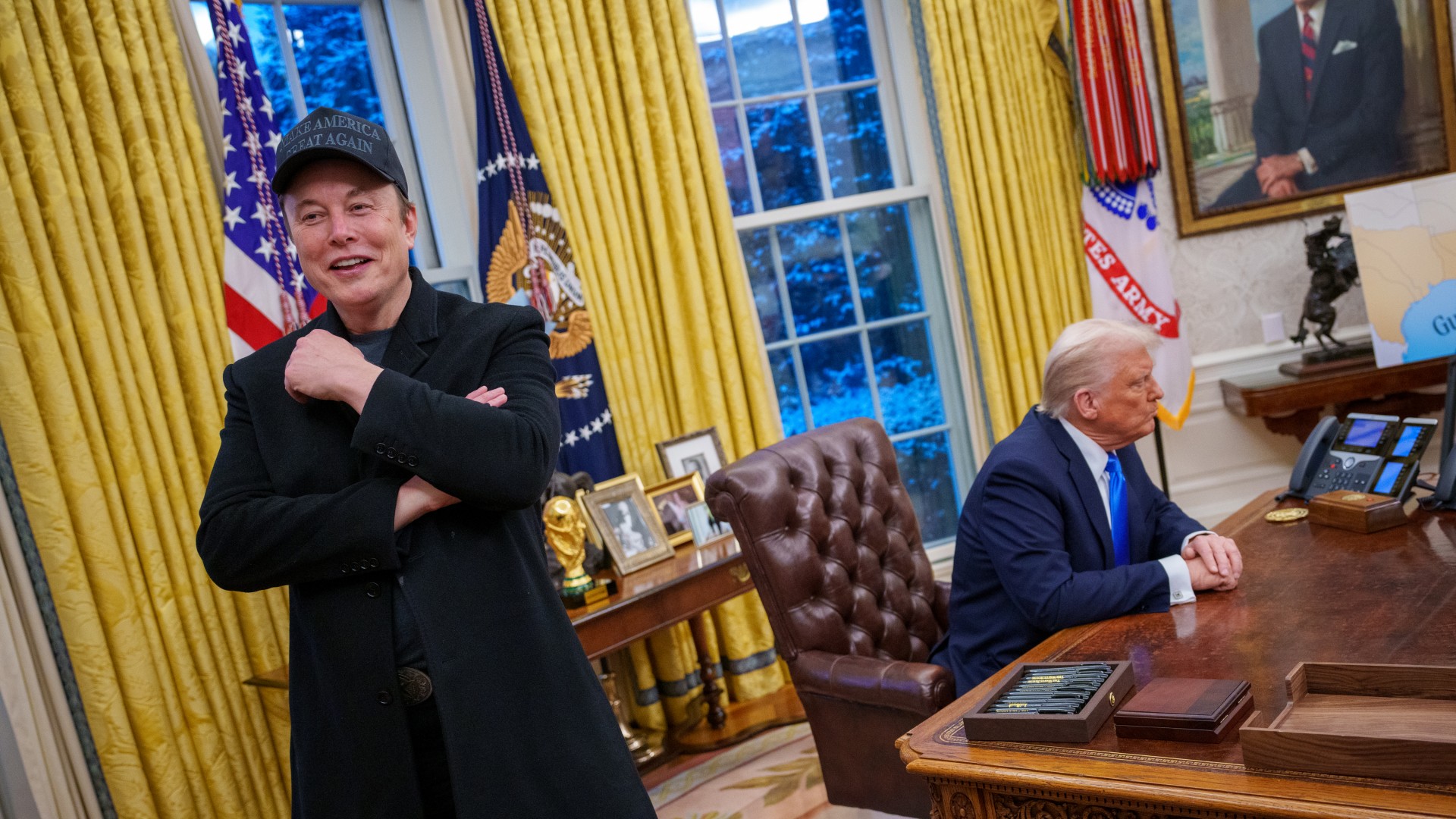DeepMind Thinks AI Will Do All the Work—You Just Need to Chill Until 2035
Elon Musk reportedly wanted to use Mars as a backup planet "in case something went wrong here," but AI thwarted the plans.

All the latest news, reviews, and guides for Windows and Xbox diehards.
You are now subscribed
Your newsletter sign-up was successful
While AGI (artificial general intelligence) has seemingly turned into a buzzword with a different definition depending on context and who's talking, the benchmark seems like the ultimate end goal for top AI firms heavily invested in the ever-evolving landscape.
However, Microsoft and OpenAI may have an entirely different AI strategy, with CEO Satya Nadella indicating that the software giant is more inclined towards delivering real-life impact using the tech rather than chasing down AGI. Similarly, Sam Altman has seemingly shifted gears to self-replication.
Interestingly, the OpenAI CEO had previously indicated that he was confident that his team of researchers, engineers, and scientists was poised to build AGI, further revealing that the company was shifting its focus towards superintelligence.
More recently, Google DeepMind's CEO, Demis Hassabis, touched base with The Guardian to discuss the implications of AI in the future. As you might have guessed, its effect on the job market and potential to cause mass unemployment was a hot topic.
Over the past few months, tech leaders have made bold claims about the technology's negative impact on jobs, including Anthropic CEO Dario Amodei, who claimed that AI is on the verge of slashing up to 50% of entry-level white-collar jobs, leaving the youth stranded.
Microsoft co-founder Bill Gates recently echoed similar sentiments, indicating that AI is well on its way to causing a paradigm shift in the job market for the youth, and that the only way around this is to "be curious, read, and use the latest AI tools."
Hassabis refers to DeepMind as "the engine room of Google," following a $400 million acquisition in 2014. But perhaps more importantly, the executive claims that the coveted AGI benchmark might be within Google's reach in 5 to 10 years.
All the latest news, reviews, and guides for Windows and Xbox diehards.
I don’t know if it will be a single moment. It may be a gradual thing that happens, but we’ll have something that we could sort of reasonably call AGI, that exhibits all the cognitive capabilities humans have, maybe in the next five to 10 years, possibly the lower end of that.
DeepMind CEO, Demis Hassabis
This news comes after the executive previously claimed that AGI is coming while blatantly expressing his doubts about society being ready to handle all that it entails. He admitted that the prospects keep him up at night.
Elsewhere, OpenAI CEO Sam Altman indicated that he was scared of GPT-5 pending its much-anticipated release. "What have we done?" he added. The executive indicated that the model's capabilities are rapidly outpacing oversight.
There are several ways of looking at AGI, apocalyptic or even utopian. And while Hassabis leans more towards the latter, he considers himself a "cautious optimist."
An AI-driven world filled with radical abundance
According to the executive:
“Assuming we steward it safely and responsibly into the world, and obviously we’re trying to play our part in that, then we should be in a world of what I sometimes call radical abundance.”
But this is on the assumption that critical deterrents like lack of capital, computing power, cooling water, and regulation don't thwart the plans. In a world rife with radical abundance, we may “never need to work again.”
Perhaps more concerning, this might mean that we are handing over control over our economic power to AI. Hassabis raised an important point, highlighting the importance of making sure that the radical abundance is fairly distributed.
It’s a bit like the era I was growing up in, where home computers were coming online. Obviously it’s going to be bigger than that, but you’ve got to embrace the new technology ... If you become an expert, kind of a ninja, at using these things, it’s going to really empower the people that are good at these tools.
DeepMind CEO, Demis Hassabis
Hassabis paints himself as an optimistic person with a strong belief in human ingenuity. He believes that once AGI is achieved, humans will adapt to the drastic changes in society.
"I mean, look where we are today," he added. "Our brains were evolved for a hunter-gatherer lifestyle and we’re in modern civilisation." But compared to the Industrial Revolution, AGI is going to be 10 times faster.
Interestingly, Hassabis shared his first encounter/meet-up with Tesla CEO Elon Musk in 2014, where he shared his passionate plan to go to Mars “as a backup planet, in case something went wrong here."
DeepMind CEO quickly pointed out the flaw in his plan. "What if AI was the thing that went wrong?" He further indicated that moving to Mars wouldn't be much help or safe, as AI would probably figure out a way to get there too. Long story short, Elon Musk became a DeepMind investor.

Kevin Okemwa is a seasoned tech journalist based in Nairobi, Kenya with lots of experience covering the latest trends and developments in the industry at Windows Central. With a passion for innovation and a keen eye for detail, he has written for leading publications such as OnMSFT, MakeUseOf, and Windows Report, providing insightful analysis and breaking news on everything revolving around the Microsoft ecosystem. While AFK and not busy following the ever-emerging trends in tech, you can find him exploring the world or listening to music.
You must confirm your public display name before commenting
Please logout and then login again, you will then be prompted to enter your display name.

